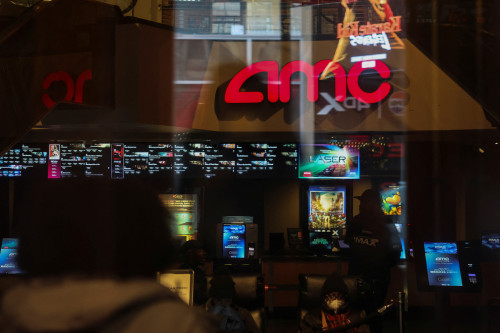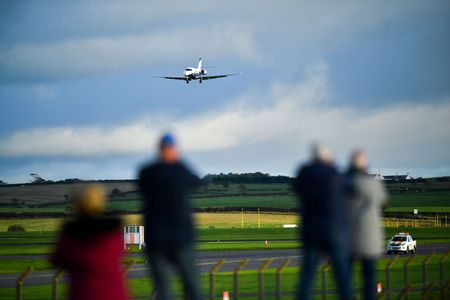 1
1 1
1
By Allison Lampert
(Reuters) – Loss-making private jet firm Wheels Up Experience nabbed a key $500 million lifeline but still faces turnaround challenges, as demand for private travel softens in the wake of the COVID-19 pandemic and rival operators lure some of their customers.
Wheels Up avoided a possible bankruptcy when it secured backing from investors on Tuesday, including U.S. carrier Delta Air Lines. Shares rose 11% on Wednesday in midday trading.
But the company still has work to do to become profitable in a more difficult environment, said business aviation consultant Brian Foley. Two operators have closed down since May in the face of diminished traffic and higher labor costs could force some private-jet operators out of business.
“There will be some more casualties,” Foley said.
Rivals, meanwhile, say they have been picking up some of the company’s customers.
“I don’t wish for turmoil in the market at all, but I’m an opportunist,” said Jim Segrave, CEO of private operator FlyExclusive, who said his company has attracted customers from Wheels Up, the third-largest private-flight operator last year.
Wheels Up said it is pleased with the response from customers. “We are in the middle of year-long meaningful improvement in our operational performance and service levels,” the company said in a statement.
Wheels Up, which charters planes by the hour, went public in 2021 through a special purpose acquisition company (SPAC) with the goal of appealing to a broader flying base as an “Uber of the sky.”
The state of private traffic and the preowned plane market are both closely watched by investors as they affect demand for corporate jets from companies like General Dynamics’s Gulfstream and Canada’s Bombardier.
While private flying remains above 2019 levels, traffic has slowed since the pandemic, when wealthy passengers sought to avoid crowded commercial airports. Charter traffic from the top 10 U.S. private airports declined 17% on an annual basis for the first half of 2023, research firm Argus International said.
“The demand we saw at the end of 2021 and 2022 would have been difficult to sustain,” said Travis Kuhn, a senior vice president at Argus.
A one-way, last-minute flight from New York to Miami on a light business jet which seats six to eight passengers would cost around $20,000, compared with a first class ticket at roughly $1,100 per passenger, according to Justin Crabbe, chief executive at private-flight platform Jettly.
Higher salaries for North American airline pilots also are putting pressure on private aviation to raise wages.
“It will challenge some of the players that lack experience,” said Andrew Collins, co-CEO of private aviation operator FlexJet.
However, experienced rivals with deeper pockets are expected to still attract flyers.
Segrave, of North Carolina-based FlyExclusive, said in an interview he sees opportunity to gain market share in a softer market as it prepares to go public through a SPAC. The company, which provided third-party flying service to Wheels Up, faces a lawsuit from Wheels Up over a contract dispute.
Jamie Walker, chairman of U.S. private jet operator Jet Linx, said he sees opportunity for both organic growth and acquisitions due to the softening marketplace. The company has attracted new customers due to Wheels Up’s recent struggles.
“We have received numerous inquiries over the last several months from Wheels Up clients who are unsettled with the financial health of the company,” Walker said. “But more importantly, we have successfully converted many of them.”
(Reporting By Allison Lampert in Montreal, editing by Ben Klayman and Andy Sullivan)